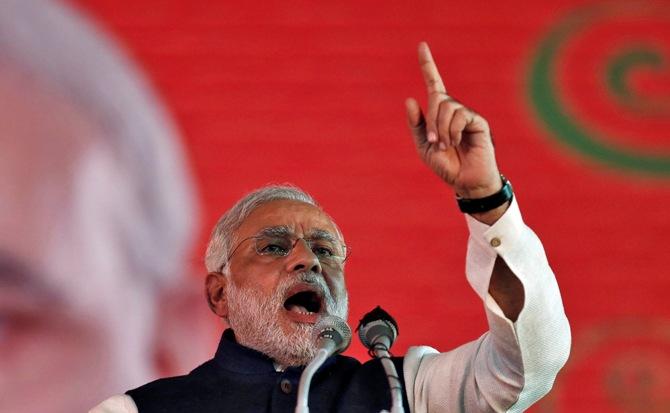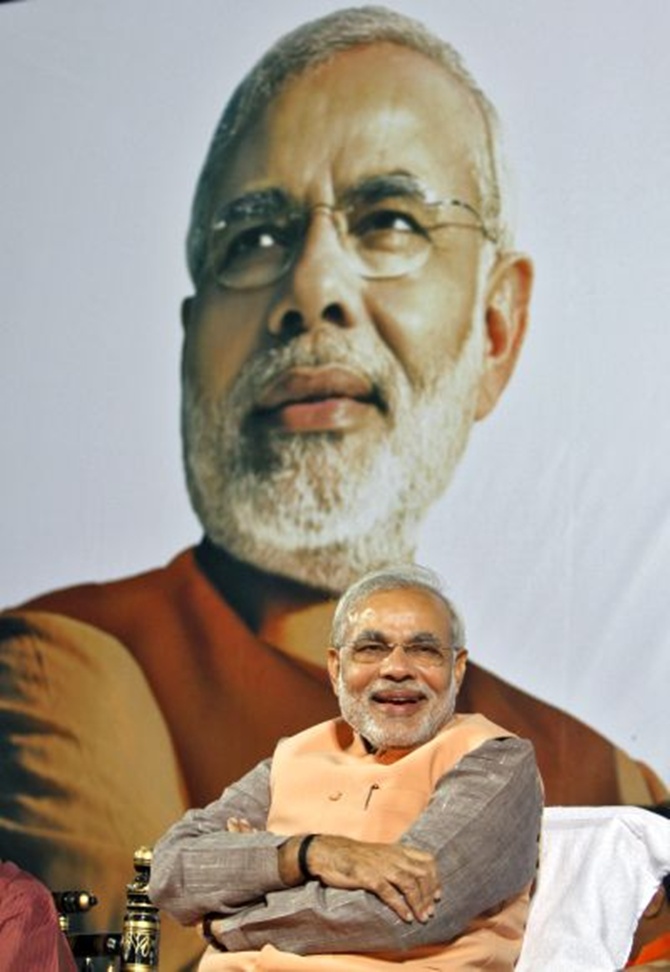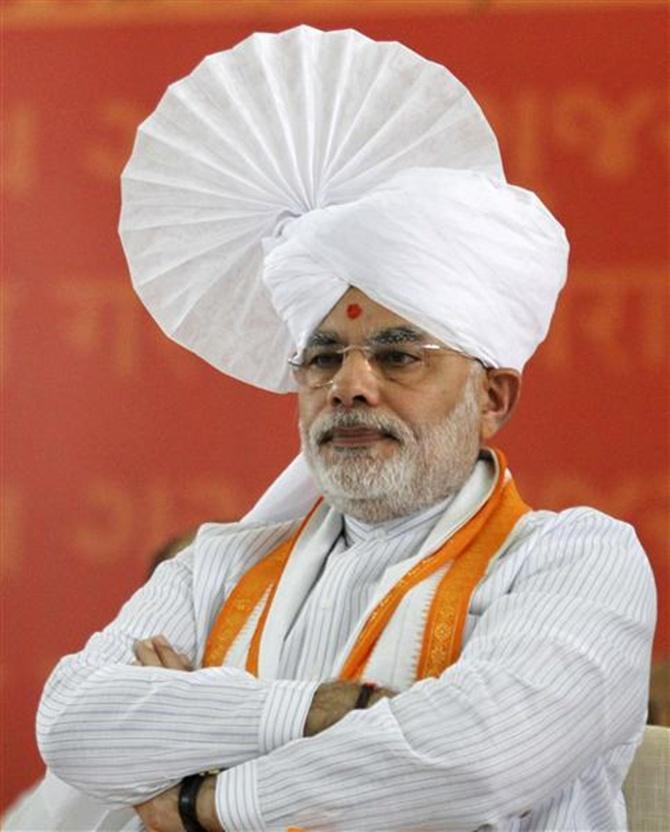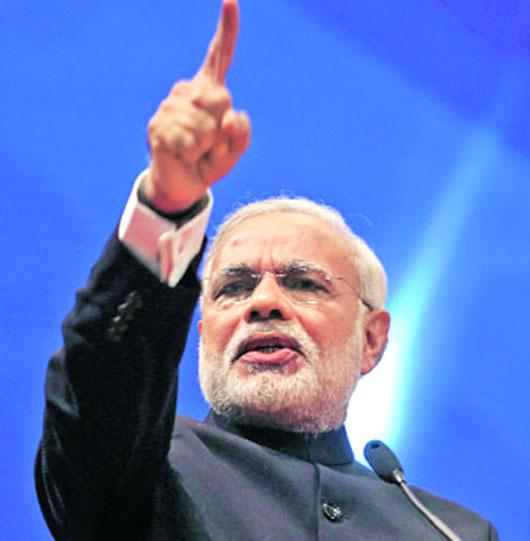 | « Back to article | Print this article |
What Modi didn't say about the economy
India would need to know the administrative principles that Mr Modi employed in Gujarat that he intends to import to Delhi in order to evaluate their effectiveness.
For the opposition Bharatiya Janata Party, the keynote address by its prime ministerial candidate, Narendra Modi, was an opportunity to explain its economic agenda -- and, particularly, detail the principles under which it will operate.
By that standard, Mr Modi’s speech must be seen as, at best, a missed opportunity.
Certainly, there were more than enough grandiose plans that may capture the imagination but will be difficult or dangerous to implement -- bullet trains and national river inter-linking among them -- but, in terms of actual detail of foundational economic principle, there was not nearly enough.
Most importantly, what the people of India need from a prime ministerial candidate who is running on, essentially, nothing more than his record as chief minister of an economically successful state is a clear statement of principle.
Click NEXT to read further. . .
What Modi didn't say about the economy
What are the basic administrative methods or policies he intends to employ?
After all, the United Progressive Alliance government has not exactly been short of big ideas; it has fallen vastly short, however, on implementation.
Mr Modi has done well on implementation by some accounts, but at the state level, activist state ministers have much greater control of the government machinery.
There is an enormous difference in scale between the Union government and any state government.
India would need to know the administrative principles that Mr Modi employed in Gujarat that he intends to import to Delhi in order to evaluate their effectiveness.
Click NEXT to read further. . .
What Modi didn't say about the economy
Crucially, in order for Mr Modi to replicate what he claims are his successes in Gujarat, to execute any of the showpiece projects he promised or to revive a stagnant economy, he needs to reform service delivery in India.
But there were no ideas on offer for how he would undertake this task as prime minister. In fact, it was hardly mentioned as a problem at all.
In Gujarat, Mr Modi has benefited not just from the opportunities available to a chief minister, but from the already-efficient state machinery of one of India’s most advanced states.
Manmohan Singh’s most enduring failure as prime minister is almost certainly his government’s inability or unwillingness to undertake administrative reform, which he had indicated in 2004 would be a priority.
Mr Modi hasn’t even gone that far.
Click NEXT to read further. . .
What Modi didn't say about the economy
This failure to explain reform within government is doubly problematic because Mr Modi seems -- very oddly for a supposed ‘reformist’ -- to rely on it so very much.
In the list of showpiece projects, in the various promises he laid out, there was no mention of the private sector.
This is a major problem with Mr Modi’s stated world view.
After all, there is little or no doubt among India’s citizens that the state is low on capacity, inefficient and expensive.
The private sector must be involved in India’s development -- but the interface between the government and the private sector in the age of private-public partnerships has become problematic, to say the least.
How will Mr Modi fix this?
Does he have a vision for it at all?
Is there even a role for the private sector in his plans other than platitudes about business climate in Gujarat? Mr Modi has to spell out a far more detailed economic vision in order to satisfy India’s voters.




